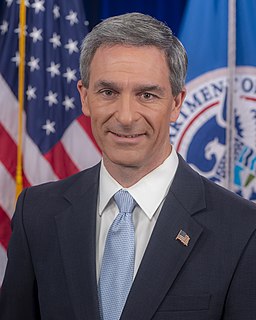A Quote by Edward Snowden
Many of our ally states don't have these constitutional protections - in the UK, in New Zealand, in Australia. They've lost the right to be free from unreasonable search and seizure without probable cause. All of those countries, in the wake of these surveillance revelations, rushed through laws that were basically ghostwritten by the National Security Agency to enable mass surveillance without court oversight, without all of the standard checks and balances that one would expect.
Quote Topics
Agency
Ally
Australia
Balances
Basically
Cause
Checks
Checks And Balances
Constitutional
Countries
Court
Enable
Expect
Free
Laws
Lost
Many
Mass
National
National Security
New
New Zealand
Our
Oversight
Probable
Probable Cause
Revelations
Right
Rushed
Search
Security
Seizure
Standard
States
Surveillance
Those
Through
UK
Unreasonable
Wake
Were
Without
Would
Zealand
Related Quotes
What we've seen over the last decade is we've seen a departure from the traditional work of the National Security Agency. They've become sort of the national hacking agency, the national surveillance agency. And they've lost sight of the fact that everything they do is supposed to make us more secure as a nation and a society.
What we're really debating is not security versus liberty, it's security versus surveillance. When we talk about electronic interception, the way that surveillance works is it preys on the weakness of protections that are being applied to all of our communications. The manner in which they're protected.
I am disturbed by how states abuse laws on Internet access. I am concerned that surveillance programmes are becoming too aggressive. I understand that national security and criminal activity may justify some exceptional and narrowly-tailored use of surveillance. But that is all the more reason to safeguard human rights and fundamental freedoms.
Listing rights generally involves enumerating things you may do without interference (the right to free speech) or may not be done to you without your permission (illegal search and seizure, loud boy-band music in public places). They are protections, not gifts of material goods. Material goods and services must be taken from others, or provided by their labor, so if you believe you have an absolute right to them, and others don't choose to provide it to you, you then have a 'right' to steal from them. But what about their far more fundamental right not to be robbed?
The combination of the growth of these digital technologies, the ability of the government to conjure up these secret interpretations, plus a very unusual and novel court make for this ever-expanding surveillance state. We so treasure our freedoms; we will regret it if our generation doesn't use this unique time to reform the surveillance laws and make it clear that security and liberty are not mutually exclusive. We can do both.






























